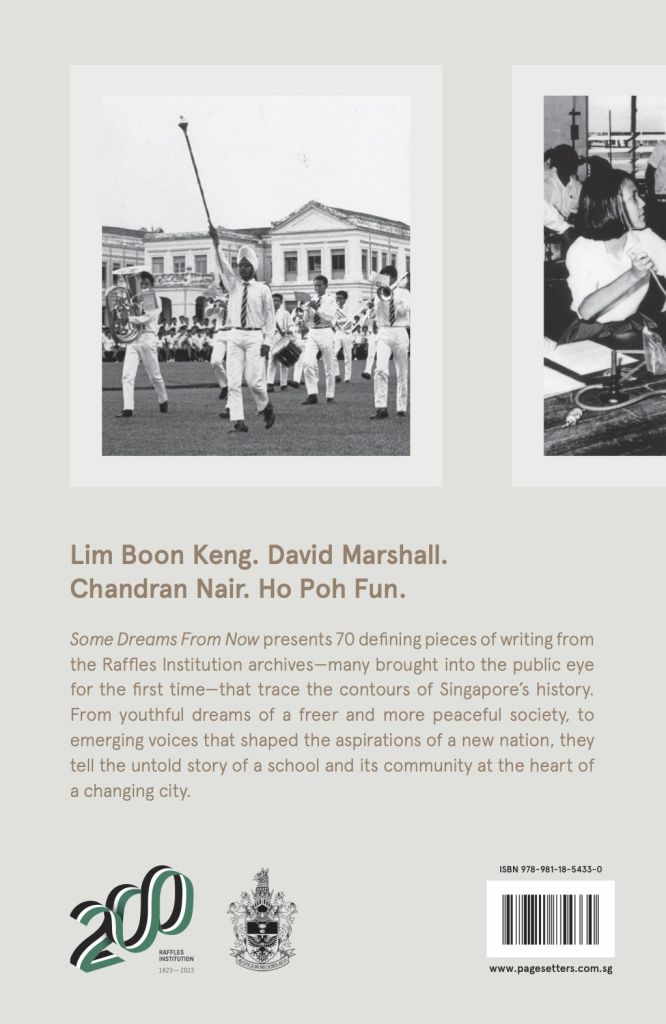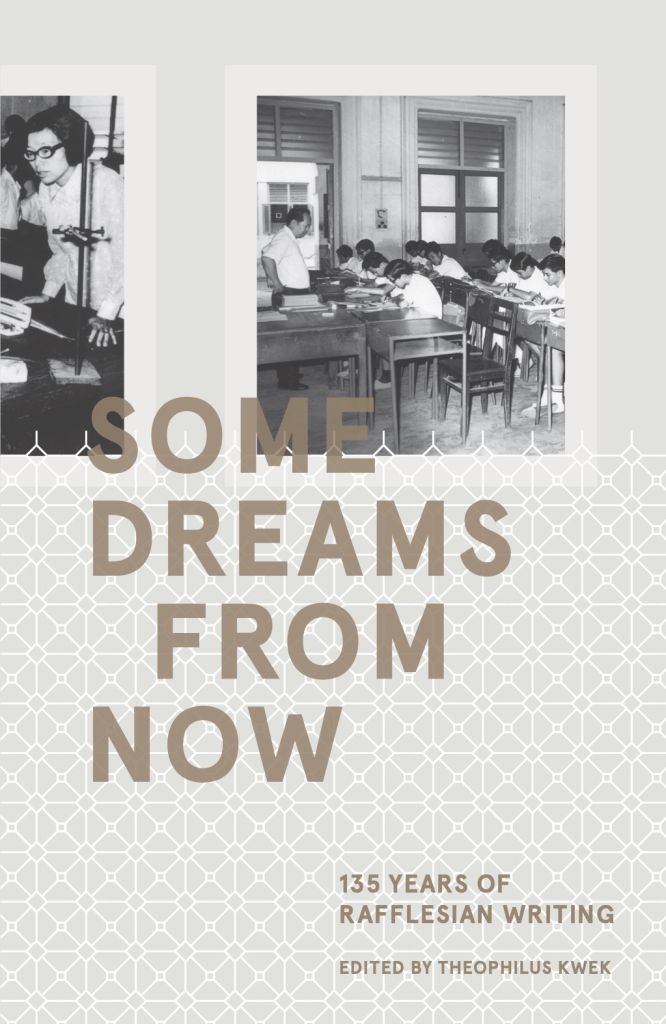

About
Lim Boon Keng. David Marshall. Chandran Nair. Ho Poh Fun.
Some Dreams From Now presents 70 defining pieces of writing from the Raffles Institution archives— many brought into the public eye for the first time—that trace the contours of Singapore’s history.
From youthful dreams of a freer and more peaceful society, to emerging voices that shaped the aspirations of a new nation, they tell the untold story of a school and its community at the heart of a changing city.
Pagesetters Services handled production and print management for this title.
Pre-order now at Books Kinokuniya.
About the editor:

Theophilus Kwek has published four poetry collections, two of which—Circle Line (2014) and Giving Ground (2016)—were shortlisted for the Singapore Literature Prize. His work has appeared in The Guardian, Times Literary Supplement, Mekong Review, and elsewhere. He serves as Poetry Editor of the Asian Books Blog, and his latest collection is Moving House (Carcanet Press, 2020). He graduated from Raffles Institution in 2012.
What others have to say:
“As emerging thinkers, writers and learners, the students of Raffles Institution have always keenly engaged with the intellectual, cultural and social currents of their time, with an abiding interest in Singapore’s well-being and future. As this anthology amply demonstrates, this is a creative tradition that extends from the earliest days of the school’s establishment to the present day.”
—Dr Alvin Pang
RI (1985-1988; 1989-1990)
“Some Dreams From Now presents not merely a rich collection of poetry, prose, and essays spanning the colonial period of the late 19th century to the present, it is an important historical document. These works, comprising imaginative writing and social commentary, provide glimpses of everyday experiences of youths through the decades of Singapore’s history. They highlight the wit, aesthetic craftsmanship and intellectual dexterity through which English educated local students developed their capacity to appropriate the language and cultural tools of their colonial rulers in order to give voice to their experiences, criticisms and aspirations. This work is a testament to the power of language as a catalyst for agency and envisionment.”
—A/P Suzanne Choo
Associate Professor, English Language and Literature Academic Group National Institute of Education, Nanyang Technological University
